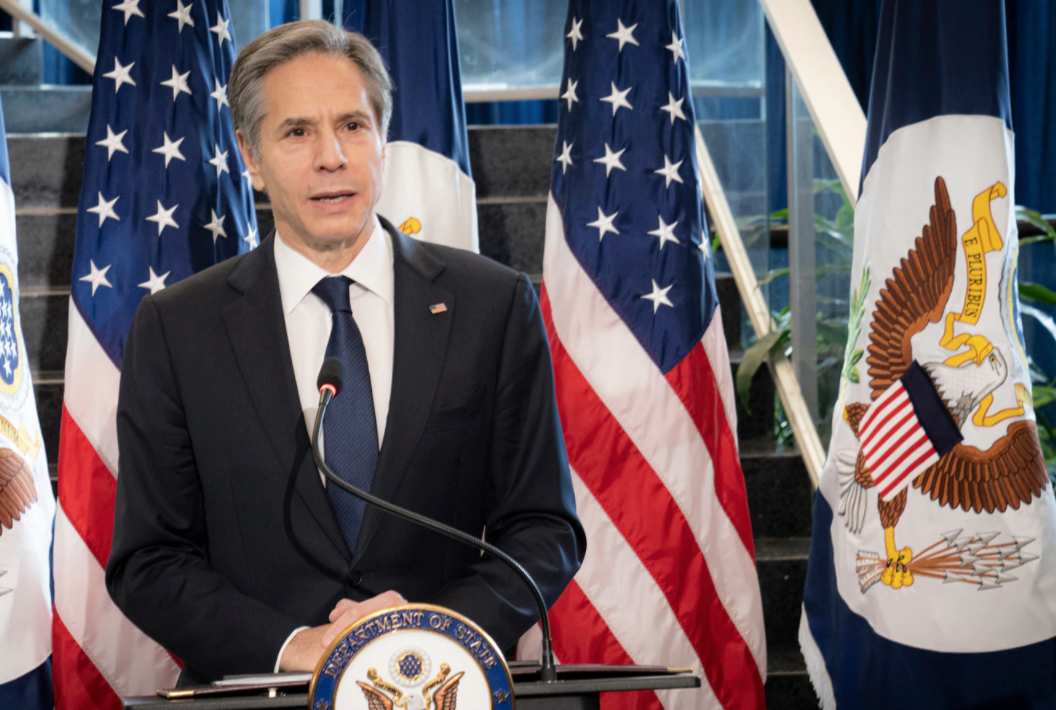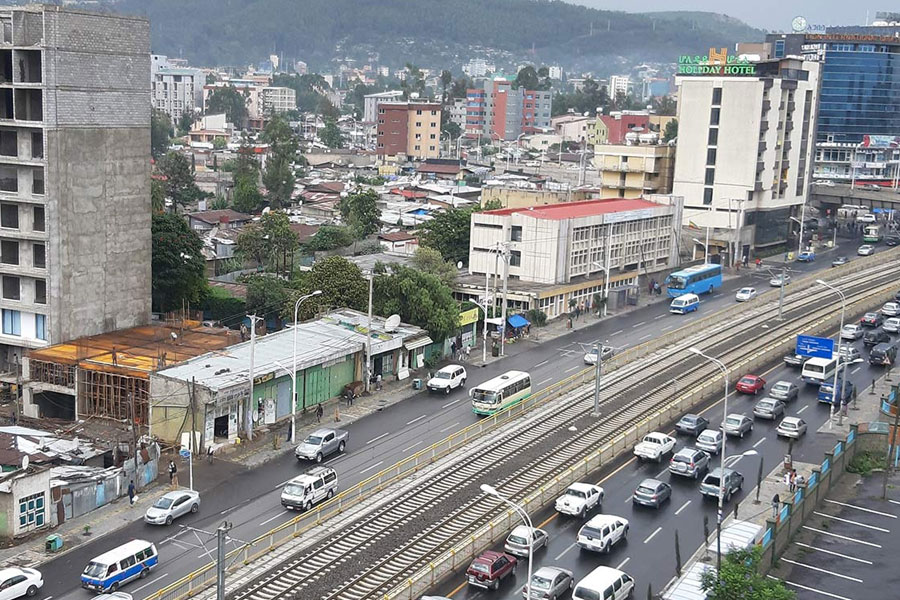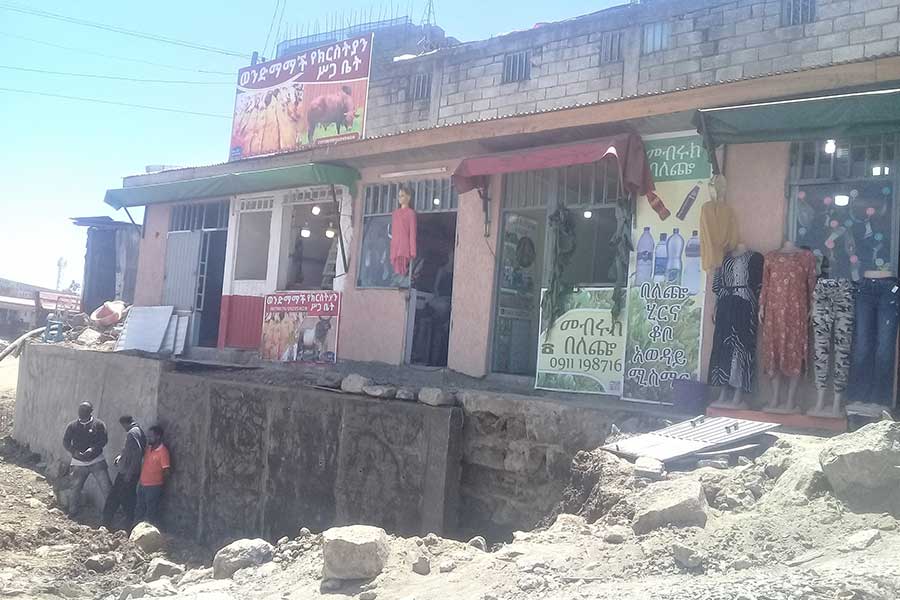
Films Review | Jan 01,2022
A rudimentary website search for the “the most expensive dinner” in Ethiopia hosted by Prime Minister Abiy Ahmed (PhD) last Sunday presented a quandary. There were no images, reports or event attributions that could be traced to any independent news media representative in Ethiopia. The main source of images and information about the event seems to come from the state-affiliated Fana Broadcasting where guests paid around 173,000 dollars each to dine at the palace of Emperor Menelik II.
The fundraising event to finance Abiy’s one-billion-dollar pet project to revitalise Addis Abeba showcased the newly renovated Banquet Hall of Menelik II, Enkulal Adarash, located within the sprawling compound of the palace that serves as the Prime Minister's residence.
From what could be gleaned from pictures posted by Fana on its Twitter page, there was the fanfare welcome to the sounds of Meleket, a long traditional trumpet without finger-notes; the beating of Negarit, a kettledrum played with sticks; and the Prime Minister standing to the side and welcoming the guests by bowing as they arrived at the grand entrance stairs of the dining hall.
The guests, who resemble the hordes who wait outside Macy’s New York Christmas basement-bargain sale to open, were photographed climbing the stairs en masse. There seems to have been no order of approach, nor any dress code required of the guests for many of the men showed up with blue and grey suits, a few with bow ties and some of them even tieless.
This was no ‘white tie’ affair, evidently that required the men to wear hand-tied bows; evening tailcoats; high-waisted trousers; pleated white evening shirts with cufflinks; low-cut evening waistcoats; and black patent leather shoes complimented with black evening socks. Nor were the women required to wear long, formal evening dresses.
The fundraising event to finance Abiy’s one-billion-dollar pet project to revitalise Addis Abeba showcased the newly renovated Banquet Hall of Menelik II, Enkulal Adarash, located within the sprawling compound of the palace that serves as the Prime Minister's residence.
Emperor Haile Selassie also used Menelik’s Banquet Hall to host gala events including in honour of Queen Elisabeth II on February 1, 1965, when 1,000 guests attended. Both the invitation card and menu were printed on mould-made cotton paper embossed with the monogram of the imperial seal.
The invitation card specified the dress code; and the menu, written in French, offered Maroobrunner 1959 vintage wine for Hors d’oeuvers Impèrial; Charmes-Chambertin 1954 with the main course; and Gordon Rouge Champaign for desserts listed as Gateau Singapore - a richly layered cake of cream and fruits. Behind the guests at the imperial banquet stood footmen and butlers in ceremonial livery, attending to every need of the invited assembly and serving the dinner courses as they arrive from the royal kitchen.
Whether Abiy’s event warrants a black-tie or a white-tie code of dress may be of little significance in the scheme of things but it makes for a good story to report whenever the palace holds formal events.
Formalities, decorum and ceremonies are the means by which the government communicates its sovereign presence to the people much like universities use different colour gowns and hats for graduations and investitures.
If nothing else, the city’s elite strutting in formal evening dress across the corridors of power in the palace will enliven the otherwise mundane routines of city life, and bring relief to citizens from the dreary, ceaseless monologues and interviews that Ethiopian television stations nightly subject their audiences to.
From what could be gleaned from pictures posted by Fana on its Twitter page, there was the fanfare welcome to the sounds of Meleket, a long traditional trumpet without finger-notes and the beating of Negarit, a kettledrum played with sticks.
The lack of decorum and propriety has slipped out of control in Ethiopia. A chamber of the Federal High Court are now located in an unfinished five-storey building around Tor Hailoch, a building more suited for apartments than a courtroom.
In one chamber, three High Court judges sit in a small office conducting three separate hearings from behind their desks. Most attorneys appear in court tieless, some of the younger lawyers dressed in tight pants, canvas shoes and display unkempt wild hair. One of the judges wears a cardigan sweater over his t-shirt that he covers with a black gown while in session. To the casual observer, this motley crew of judges and attorneys represent how low the symbol of authority of the state has descended over the last four or five decades.
Symbols that project the state’s potency and relevance, like the Federal Court House, are part and parcel of good governance.
What better way to show citizens that the government cares about the public image it portrays than to keep its own house in order?
A more pressing issue, however, is the exclusion of the private media from Abiy’s dinner which raises some fundamental questions about the trajectory of changes envisioned for the country. The private media is the eyes and ears of the people and the only means by which the citizens can receive independent information about what takes place in the palace. This free media is the actual link between the governed and the government, not the state-owned media, which has hitherto operated as the mouthpiece of the state.
Among the citizens, the discussions are no longer about the merit and demerit of the revitalisation project or the necessity and ostentatiousness of the dinner itself, but the intentions of the government, the image it projects and the messages it communicates.
Who are they that are so rich that they can afford to pay five million Birr for a dinner? Are they there to try to buy favours of Abiy? Could they have not used the money to improve the transportation system, pick up the trash and fix the sewer system?
Since many in Ethiopia would never earn that much in a lifetime of work and toil, the scepticism is real and justified. Also, the necessity of undertaking a project of this size and scale without properly communicating its feasibility and its benefits to the citizens makes it automatically questionable and places the nature of reforms that Abiy is pursuing under a dark cloud of doubts.
PUBLISHED ON
May 25,2019 [ VOL
20 , NO
995]


Films Review | Jan 01,2022

Fortune News | May 24,2021

Fortune News | Jul 03,2021

Radar | Jul 18,2021

Radar | Sep 10,2021

Fortune News | Dec 11,2021

Commentaries | Oct 26,2019

Radar | Jul 03,2021

Commentaries | May 21,2022

View From Arada | Dec 05,2018

Dec 22 , 2024 . By TIZITA SHEWAFERAW
Charged with transforming colossal state-owned enterprises into modern and competitiv...

Aug 18 , 2024 . By AKSAH ITALO
Although predictable Yonas Zerihun's job in the ride-hailing service is not immune to...

Jul 28 , 2024 . By TIZITA SHEWAFERAW
Unhabitual, perhaps too many, Samuel Gebreyohannes, 38, used to occasionally enjoy a couple of beers at breakfast. However, he recently swit...

Jul 13 , 2024 . By AKSAH ITALO
Investors who rely on tractors, trucks, and field vehicles for commuting, transporting commodities, and f...

Oct 11 , 2025
Ladislas Farago, a roving Associated Press (AP) correspondent, arrived in Ethiopia in...

Oct 4 , 2025
Eyob Tekalegn (PhD) had been in the Governor's chair for only weeks when, on Septembe...

Sep 27 , 2025
Four years into an experiment with “shock therapy” in education, the national moo...

Sep 20 , 2025
Getachew Reda's return to the national stage was always going to stir attention. Once...